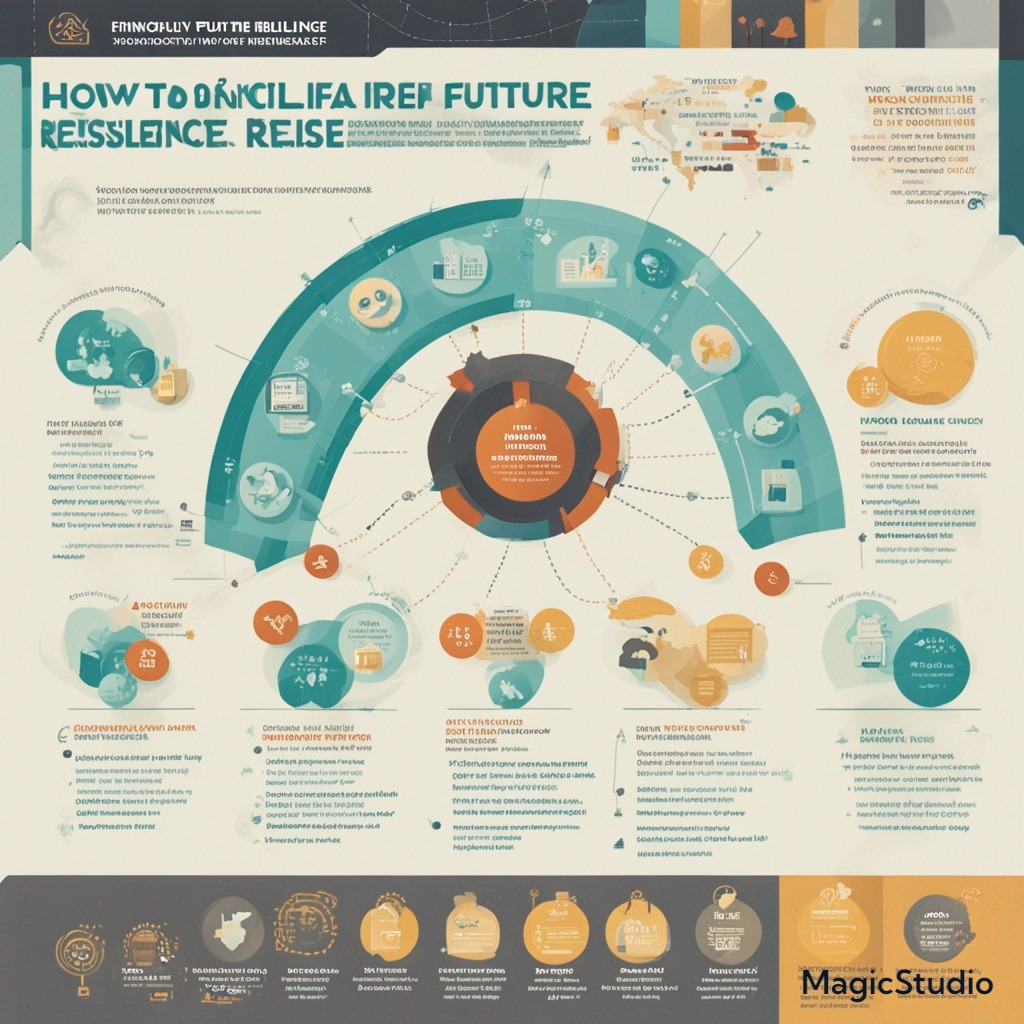In today’s rapidly changing economic landscape, building financial resilience has become more important than ever. Financial resilience is the ability to withstand economic shocks, adapt to financial challenges, and thrive amid uncertainty. Whether it’s unexpected job loss, health issues, or economic downturns, having a robust financial foundation can make all the difference. In this blog, we will explore effective strategies for cultivating financial resilience that can secure your future.
1. Create an Emergency Fund
One of the most fundamental steps to building financial resilience is establishing an emergency fund. This fund serves as a safety net during unexpected events, allowing you to cover essential expenses without going into debt. Aim to save at least three to six months’ worth of living expenses. Here are some tips for building your emergency fund:
- Set a specific savings goal: Determine how much you need based on your monthly expenses.
- Automate your savings: Set up automatic transfers from your checking account to your savings account to make saving easier.
- Start small: If saving a large amount feels overwhelming, begin with smaller, achievable targets.
2. Diversify Your Income Streams
Relying solely on a single source of income can be risky. By diversifying your income streams, you can create a more stable financial situation. Here are some ideas for generating additional income:
- Freelancing or consulting: Utilize your skills in a freelance capacity or as a consultant.
- Passive income: Consider investing in rental properties, stocks, or peer-to-peer lending platforms.
- Side hustles: Explore part-time work or side projects that align with your interests.
3. Invest in Continuous Learning
Investing in your skills and knowledge can significantly enhance your financial resilience. The job market is constantly evolving, and staying updated on industry trends can improve your employability and open up new opportunities. Consider these steps:
- Take online courses: Platforms like Coursera, Udemy, or LinkedIn Learning offer a plethora of options.
- Attend workshops and networking events: Engaging with professionals in your field can provide insights and connections.
- Seek certifications: Earning relevant certifications can make you more competitive in your industry.
4. Develop a Comprehensive Budget
Creating a detailed budget is essential for effective financial planning. A budget helps you track your income, expenses, and savings goals. Here’s how to create a comprehensive budget:
- List all sources of income: Include your salary, side hustles, and any passive income.
- Categorize your expenses: Divide your expenses into fixed (rent, utilities) and variable (entertainment, dining out).
- Review and adjust: Regularly assess your budget to identify areas where you can cut back or save more.
5. Understand and Manage Debt
Debt can hinder financial resilience if not managed properly. Here are some strategies to effectively handle debt:
- Prioritize high-interest debt: Focus on paying off high-interest debts first to save money on interest over time.
- Consolidate debts: Consider debt consolidation options to lower interest rates and simplify payments.
- Avoid unnecessary debt: Before making a purchase, ask yourself if it’s a need or a want.
6. Stay Informed About Financial Markets
Keeping an eye on financial markets and economic conditions can help you make informed investment decisions. Here are some ways to stay informed:
- Read financial news: Follow reputable sources like The Wall Street Journal, Bloomberg, or CNBC.
- Join financial literacy groups: Engage with communities that share insights on investing and personal finance.
- Consult with financial advisors: Seeking professional advice can help you navigate complex financial landscapes.
7. Foster a Growth Mindset
Building financial resilience is not just about numbers; it’s also about your mindset. Cultivating a growth mindset will enable you to view challenges as opportunities for learning and growth. Here’s how to foster this mindset:
- Embrace failure: Understand that setbacks are part of the journey and can provide valuable lessons.
- Set achievable goals: Break larger goals into smaller, manageable steps to track progress and build confidence.
- Celebrate successes: Acknowledge and reward yourself for reaching milestones, no matter how small.
